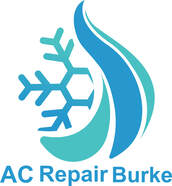|
A damaged or failing pressure relief valve is often the main issue when a water heater starts to leak. This valve prevents excessive pressure from building up in the tank, but when it fails, hot water can start to leak out. Other causes might include a cracked or corroded tank, loose or faulty fittings and pipe connections, or an improperly installed temperature and pressure relief valve. A worn-out anode rod, which helps protect the hot water tank from corrosion, could also be to blame. It’s important to determine the cause of the leak to make the necessary repairs yourself or determine if a professional needs to be called. (1): Water Leaking From The TopIf you notice water pooling at the top of your water heater, it could be due to loose pipe connections. These connections, including the cold and hot water inlets, bring water into the tank to be heated and then out into your pipes. Regular maintenance can prevent leaks and ensure everything is secure. SolutionTighten the cold and hot water inlet pipes with a pipe wrench. (2): Water Leaking From The SideIf you see water leaking from the side of your heater, it might be the temperature pressure relief valve. This safety mechanism releases hot water and steam when pressure is too high. Check if the temperature is set to 120 degrees; if it still leaks, the valve might be defective and needs replacing. SolutionIf you find water leaking from the side of your heater, the solution is to first check the temperature. Ensure it is set to the recommended 120 degrees. If the leak continues, the valve might be defective and should be replaced. (3): Water Leaking From The BottomI noticed water leaking from the base of my heater and found it was an issue with the drain valve. After checking for corrosion and finding none, I tightened the valve slightly, which fixed the leak without causing damage. SolutionWhen I saw water leaking from the base of my heater, I knew I had to inspect the drain valve. This part often causes leaks if there is corrosion. I checked for any signs and found none, so I decided to tighten the valve. It’s important not to overtighten to avoid damage. If tightening doesn’t fix the leak, you might need a replacement. Fortunately, in my case, a slight adjustment resolved the problem without needing to replace the valve. Frequently Asked QuestionsWhat causes a water heater to leak?A leaking water heater is often caused by a faulty pressure relief valve that fails to regulate built-up pressure, or by the water tank itself becoming corroded or cracked. Regular maintenance is crucial to prevent these issues. Where is a water heater most likely to leak?Leaks in water heaters often occur where water enters and leaves the tank due to high pressure damaging the connecting tubes. Regular maintenance can prevent these issues. Why is my heater leaking water?If your water heater is leaking, it might be due to a clogged drainage from an attached appliance or a faulty condensate drain in high-efficiency furnaces. Another common cause is a cracked inducer assembly. Regular maintenance can prevent these issues. Should I stop using water if water heater is leaking?For minor leaks in a water heater, it's safe to use water for daily activities, but for large leaks or issues with the T&P valve, consult a licensed plumber immediately.
0 Comments
Leave a Reply. |
AuthorWrite something about yourself. No need to be fancy, just an overview. Archives
June 2024
Categories |
- Home
-
Services
- Residential HVAC >
-
Commercial HVAC
>
- Professional Commercial AC Services
- Professional Apartment AC Services
- Commercial HVAC Installations
- Commercial HVAC Services
- Commercial Plumbing Services
- Commercial Water Heater Services
- Commercial Refrigeration Services
- Commercial AC and Furnace Services
- Commercial AC Pump Services
- Commercial Rooftop Unit Services
- Commercial Duct Cleaning Services
- Commercial Heating Preventive Maintenance
- About Us
- Near Me
- FAQ'S
- Contact Us
- Free Estimate
- Resources
- Blog
- Home
-
Services
- Residential HVAC >
-
Commercial HVAC
>
- Professional Commercial AC Services
- Professional Apartment AC Services
- Commercial HVAC Installations
- Commercial HVAC Services
- Commercial Plumbing Services
- Commercial Water Heater Services
- Commercial Refrigeration Services
- Commercial AC and Furnace Services
- Commercial AC Pump Services
- Commercial Rooftop Unit Services
- Commercial Duct Cleaning Services
- Commercial Heating Preventive Maintenance
- About Us
- Near Me
- FAQ'S
- Contact Us
- Free Estimate
- Resources
- Blog
Local Service AreasHours of Operation
Monday 9:00 AM - 5:00 PM
Tuesday 9:00 AM - 5:00 PM Wednesday 9:00 AM - 5:00 PM Thursday 9:00 AM - 5:00 PM Friday 9:00 AM - 5:00 PM Saturday 9:00 AM - 5:00 PM |
Navigation |
Services |
Contact us |
Terms of service | Privacy Policy | Sitemap


 RSS Feed
RSS Feed
